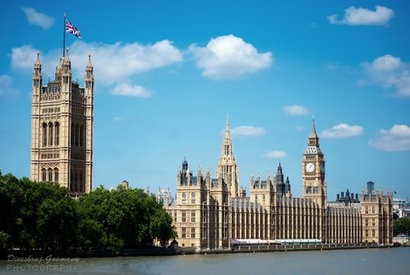
The axing of DECC and the integration of British climate change and clean energy policies into the new Business Energy and Industrial Strategy (BEIS) department has received a mixed reaction across the UK clean energy sector and among British environmental groups. Friends of the Earth and Greenpeace in particular claimed it is retrograde step, demonstrating the downgrading of climate change as a government priority.
Sir Ed Davey, former coalition Energy Secretary, also criticised the decision, claiming it would hit investor confidence, while former Labour Party leader Ed Miliband described it as “plain stupid”. However, Government sources have acted swiftly to calm fears of a ‘watering down’ of UK clean energy policy.
“Tackling climate change remains a key priority for the government with the creation of BEIS and is essential in ensuring economic prosperity and security for our country” said a Government spokesman. “We are committed to the UK Climate Change Act and the Global Deal signed in Paris and have already accepted the recommendation of the Committee on Climate Change on the 5th Carbon Budget”
Not everyone involved in the climate debate views the move with alarm however, for example leading climate economist Lord Stern said that he was content with the change, while Lord Deben, chair of the Climate Change Committee (CCC), stated that he would judge the decision by actions, not by titles. Environmental group WWF believes that the new department can be a “real powerhouse for change” if climate change is hardwired into it. The think-tank Policy Exchange echoed WWF’s view, stating that a merger with BIS means that “energy and climate change issues can be elevated to a much higher level politically.”
Richard Black, Director of the Energy and Climate Intelligence Unit (ECIU) was another of those welcoming the move, praising the appointment of Greg Clark as the new Business and Energy Secretary:
“He understands climate change” said Black “…and has written influential papers on the benefits of Britain developing a low-carbon economy. Importantly, he sees that economic growth and tackling climate change are bedfellows, not opponents – and he now has the opportunity to align British industry, energy and climate policy in a way that has never been done before.”
RenewableUK Chief Executive Hugh McNeal echoed Black’s comments, stating that RenewableUK can attract inward investment in the UK with the potential for onshore wind to become the cheapest source of new power for Britain.
Prime Minister May has also acted to underline the new departments commitment to clean energy policy by appointing a number of green-thinking junior ministers to the new department, notably Nick Hurd, Margot James and House of Lords peer Baroness Lucy Neville-Rolfe.
For additional information:
Department of Business, Energy and Industrial Strategy (BEIS)

